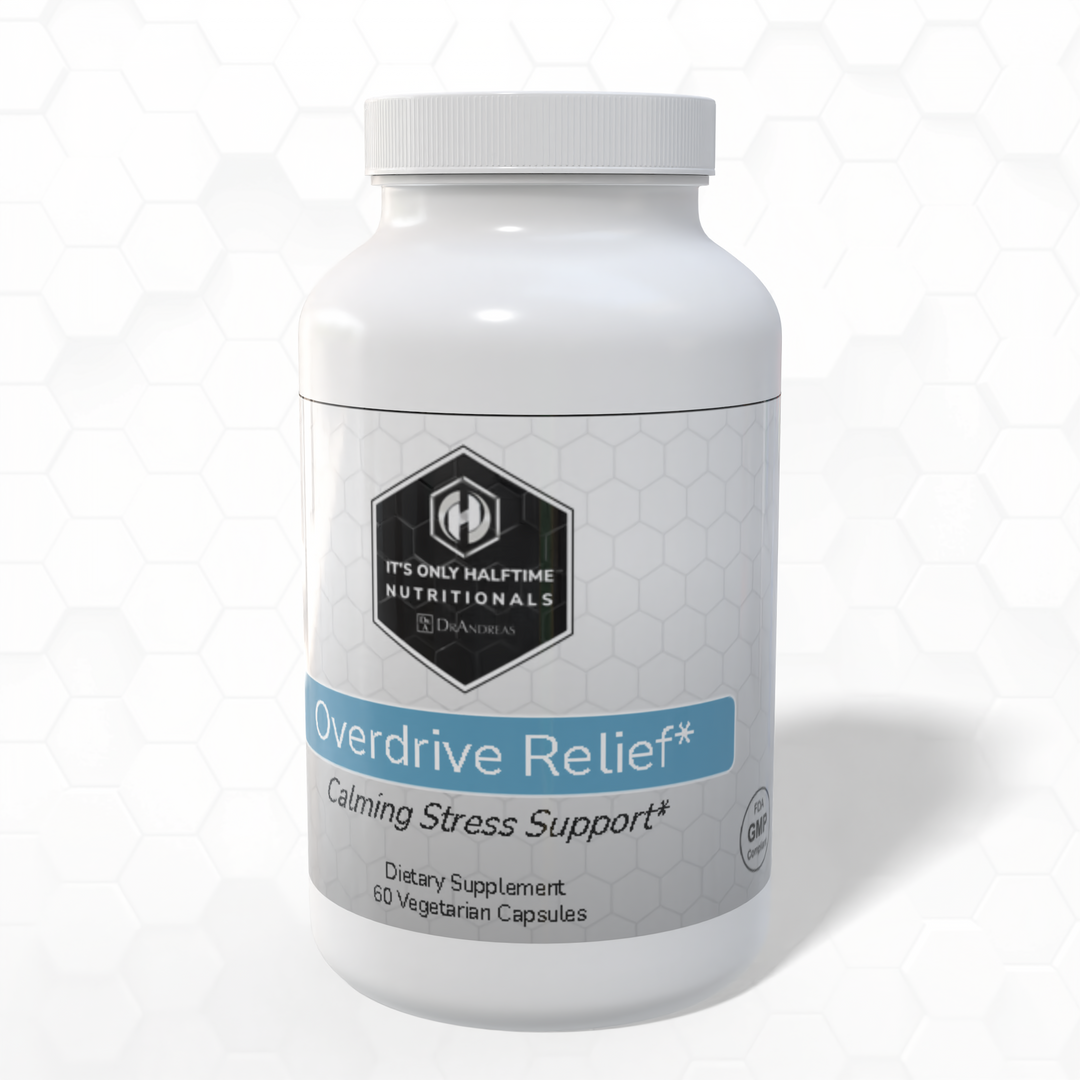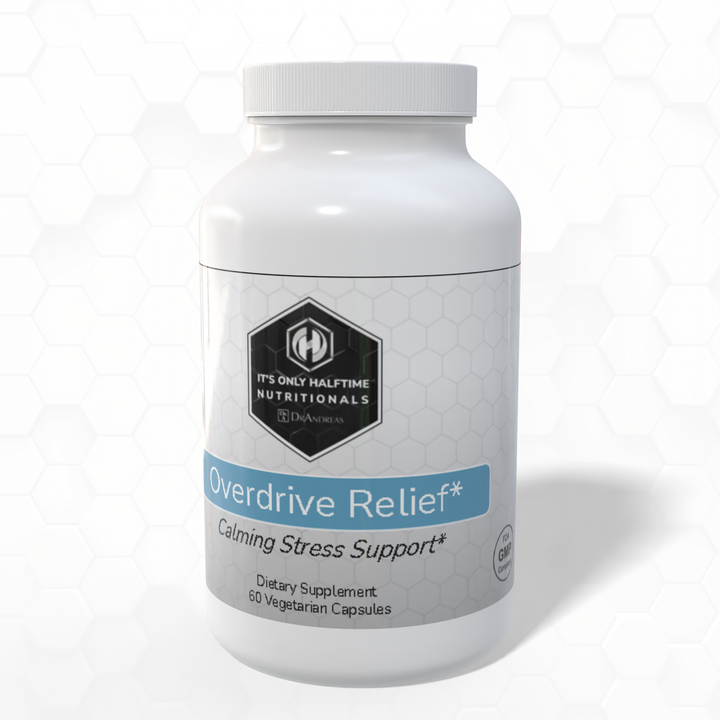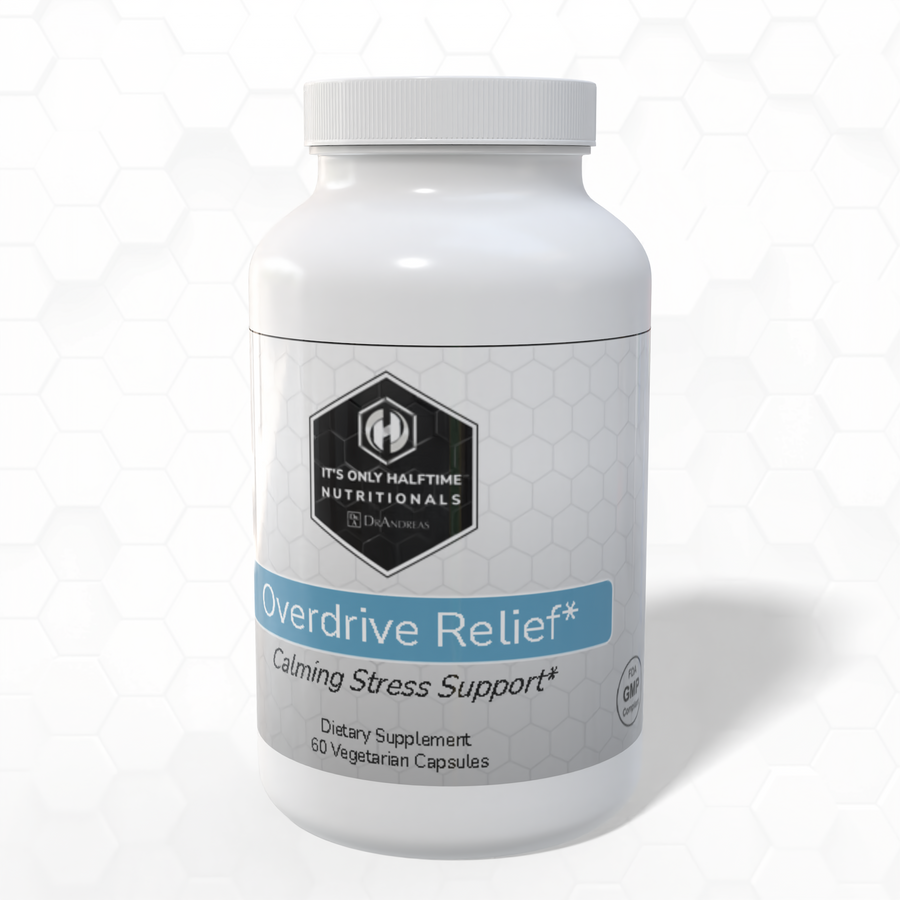Restore Balance, Reclaim Energy, and Conquer Stress — Naturally
Introducing a scientifically formulated adaptogenic blend designed to help your body adapt to stress, balance cortisol, support restful sleep, and restore natural vitality.
Whether you're battling burnout, struggling with energy crashes, or waking up more tired than you went to bed — this formula helps reset your stress response and support your body’s natural resilience.
🌿 Key Adaptogenic Ingredients & Their Clinically Backed Benefits:
➤ Ashwagandha (200 mg, 7% Withanolides)
Ashwagandha is one of the most researched adaptogens shown to lower cortisol levels by up to 27.9%, according to a randomized, double-blind, placebo-controlled study published in the Indian Journal of Psychological Medicine. It’s also been proven to enhance sleep quality, reduce anxiety, and support testosterone production in men.
➤ Licorice Root (200 mg, 4:1 extract)
Known for its adrenal-supporting properties, licorice can help extend the half-life of cortisol in cases of adrenal fatigue or low cortisol output, helping maintain stable energy levels throughout the day. Licorice also possesses anti-inflammatory and immune-modulating effects.
➤ Maca Root (150 mg, 0.6% Glucosinolates)
Maca has been traditionally used to support energy, stamina, and libido. Research published in Evidence-Based Complementary and Alternative Medicine has linked maca with improved mood and enhanced adaptation to stress, especially during periods of hormonal imbalance or fatigue.
➤ Skullcap (Baikal) Root (100 mg, 4:1 extract)
This powerful herb contains flavonoids like baicalin, which have shown neuroprotective effects and support GABAergic activity in the brain — helping promote calmness and reduce anxiety without sedation.
➤ Panax Ginseng (25 mg, 10% Ginsenosides)
Often referred to as the “King of Herbs,” Panax Ginseng has been shown to reduce fatigue, improve cognitive performance, and support immune health. Ginsenosides are active compounds that also help regulate the HPA axis and support hormonal balance.
✅ Benefits You Can Feel:
-
Reduce elevated cortisol levels
-
Improve sleep quality and sleep latency
-
Enhance mood, calm, and resilience under stress
-
Support adrenal and hormone health
-
Boost stamina, mental clarity, and overall vitality
Whether you're a high-performing executive, a busy parent, or an athlete pushing your limits — this adaptogenic blend works with your body to restore balance, not override it. Backed by centuries of tradition and modern science, this formula is a must-have for anyone looking to improve sleep, recover faster from stress, and stay energized — naturally.
Take control of your stress. Optimize your performance. And feel like yourself again.
Dosage: Take 1-2 capsule in the morning and again at lunch.
Contraindications: Caution with high blood pressure and/or edema due to licorice. Caution with anxiety, heart palpitations & insomnia due to panax ginseng.
Manufactured in a US FDA inspected facility. GMP Compliant. Purity and Potency Guaranteed! We use the highest quality raw materials available. Testing is done at various stages of production. All IOH Nutrition Formulas Meet or Exceed cGMP Quality Standards.
‡ These statements have not been evaluated by the FDA. These products are not intended to diagnose, treat, cure or prevent any disease.
60 Vegetarian Capsules





















